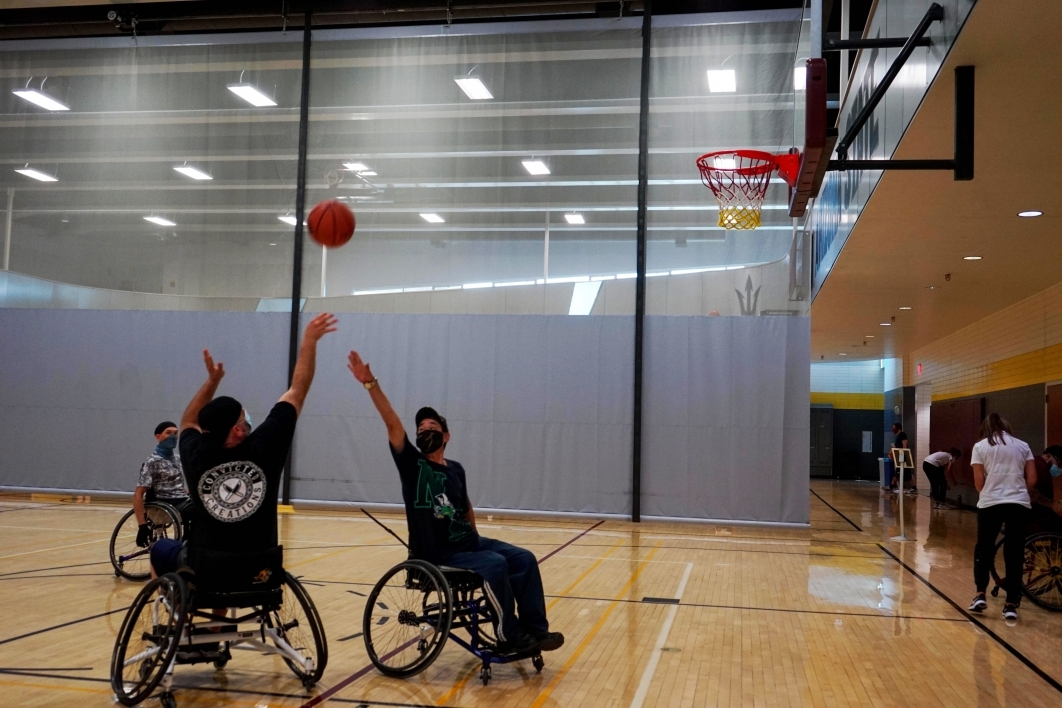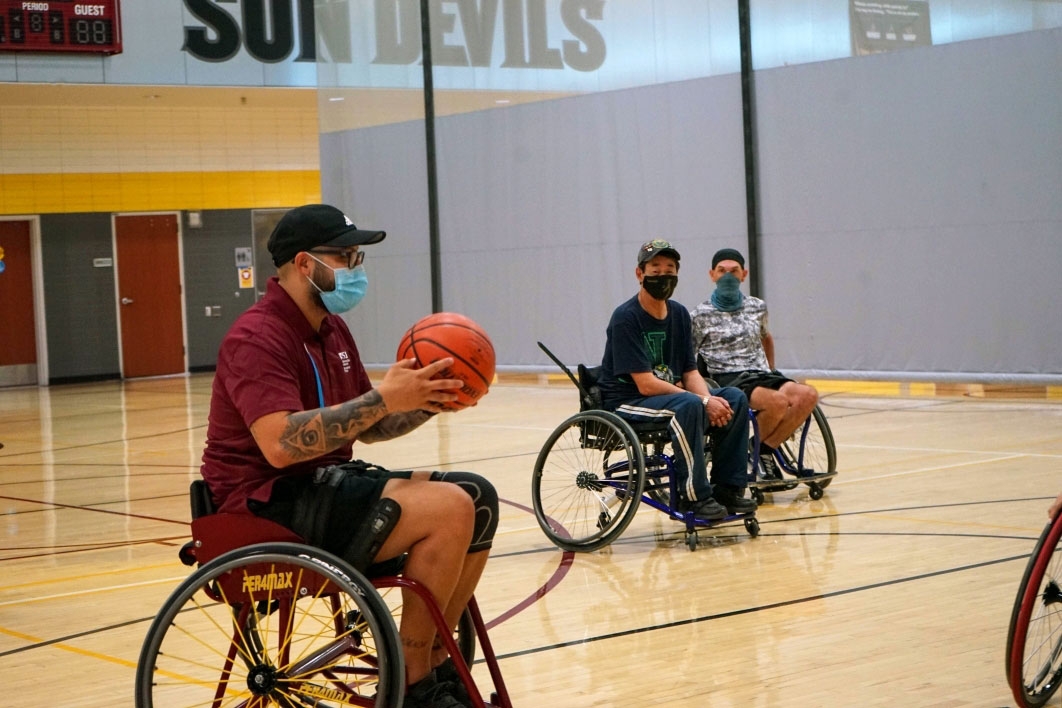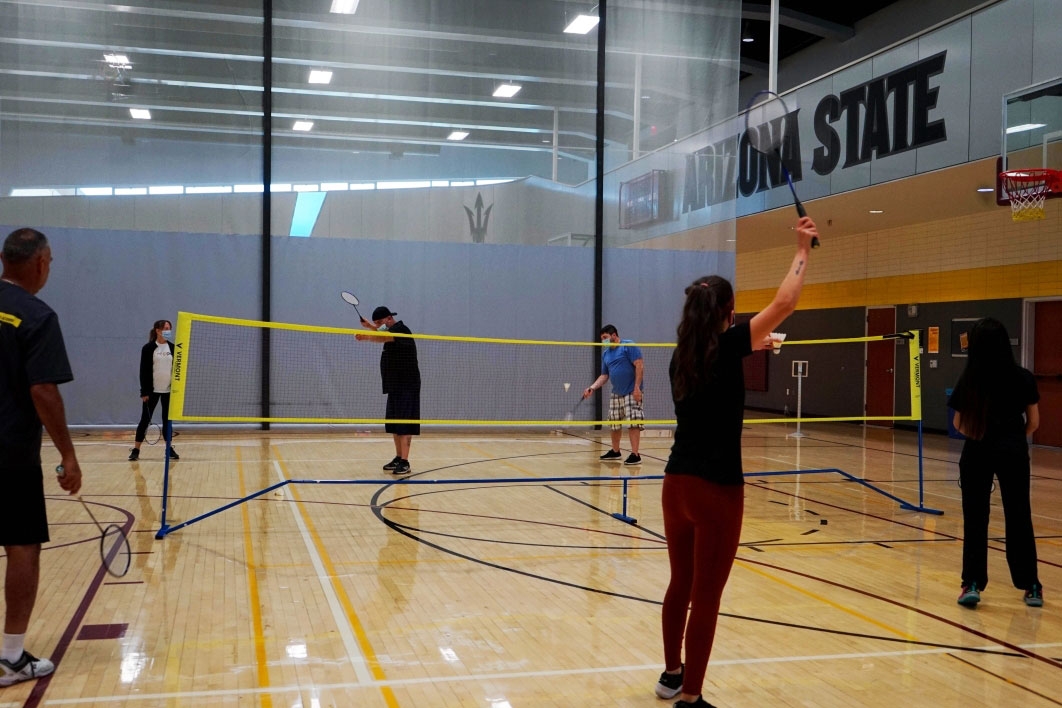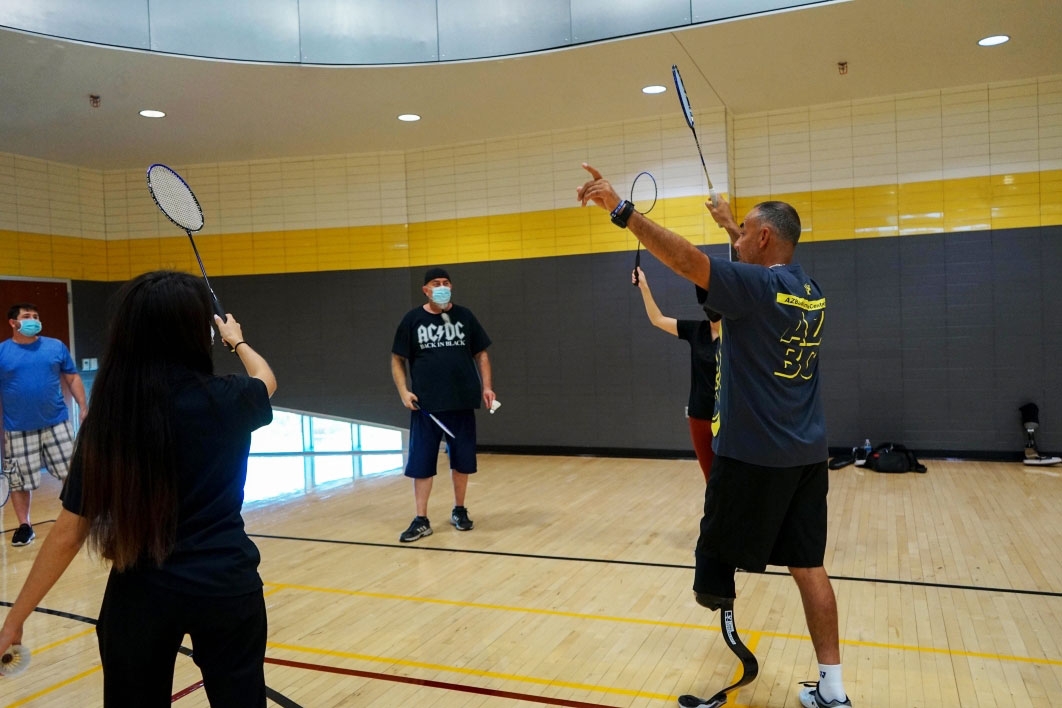ASU students help veterans through adaptive sports
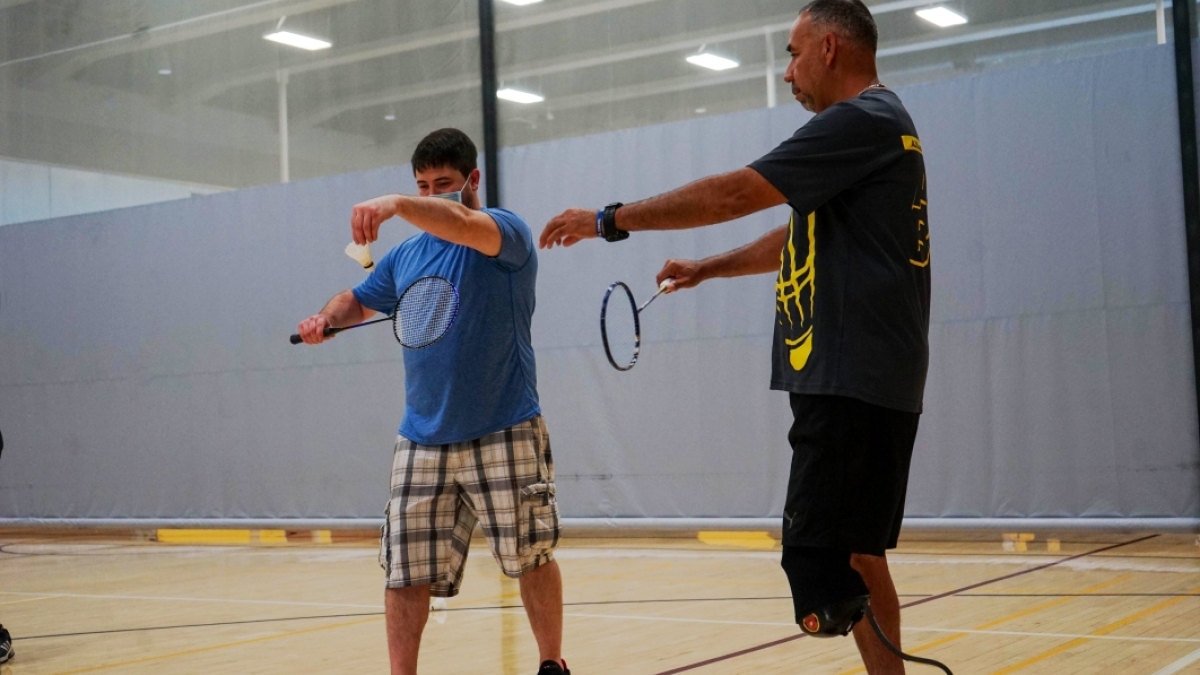
Traditional therapy doesn’t often include basketball or badminton. But for several veterans at the Phoenix VA medical center, meeting twice a week at Arizona State University to shoot hoops and hit shuttlecocks has helped them feel better physically and mentally.
Faculty members at ASU’s School of Community Resources and Development collaborated with the Carl T. Hayden Veterans Administration Medical Center to bring the students from the school and veterans together.
The students are enrolled in PRM 384, a recreational therapy practicum course, which is a requirement for earning a bachelor’s degree in recreational therapy. Their practicum involved hosting adaptive sports clinics for veterans at the Sun Devil Fitness Complex on the Downtown Phoenix campus.
Increased COVID-19 hospitalizations during the fall 2021 semester left less space for recreational therapy clinics in the Carl T. Hayden center, so two of the VA clinics were relocated to the fitness complex, where there was more room.
“The aim is to give students a wide variety of exposure to diverse service settings and populations,” said Clinical Associate Professor Kelly Ramella, who teaches the course. Groups of three to four students are paired with a specific community partner, such as the VA medical center, with which they will work during the semester.
VA lead recreational therapists Josh Parks and Michelle May have been helping the students conduct the clinics.
“For the VA to partner with the university, it’s just been a phenomenal experience,” May said. “We’re able to use sports as an outlet to help (veterans) heal either physically or mentally, so it’s just an amazing program.”
For the first half of the semester, students worked with Parks and May to host a wheelchair basketball clinic on Tuesdays and a badminton clinic on Thursdays.
Rick Alvarado, a parks and recreation major with a focus in therapeutic recreation, is taking the course for elective credit.
“My favorite part is just helping the veterans because I’m a veteran myself,” he said. “I just like to give back and see the progress of the veterans and cheer them up because I know how tough it gets sometimes.”
The clinics give the veterans an opportunity to connect while they work out.
Stephen Bradford is a veteran who attended both clinics and runs a music program for fellow veterans.
“We have to do things in combat that human beings should never do,” he said. “When I interact with other veterans that have been there and know what I’m talking about … (I know) I’m not alone.”
Richard G. Alcaraz, veteran and manager of the Arizona Badminton Center, volunteered to teach the veterans how to play badminton every Thursday.
“There are a couple things that have really changed my life,” he said. “One of them is adaptive sports.”
Alcaraz discovered adaptive sports through the VA after his leg was amputated.
“When I first became an amputee, I had good clinics with (the VA),” he said. “They’ve helped me out a lot … so in return I advocate for them. I’ll do any kind of clinic I can.”
Next semester, ASU will continue offering adaptive sports clinics with the veterans. The school also is exploring a partnership with First Place, a residential transition program for adults with autism, to offer similar experiences for ASU students.
Story by Amber Victoria Singer, student multimedia journalist, ASU School of Community Resources and Development.
Top photo: A veteran learns how to serve the shuttlecock during a badminton game as part of ASU's recreational therapy practicum course where the School of Community Resources and Development collaborated with the Carl T. Hayden Veterans Administration Medical Center to provide adaptive sports clinics for veterans at the Sun Devil Fitness Complex on the Downtown Phoenix campus. Photo by Amber Victoria Singer


